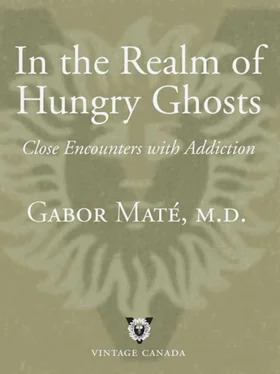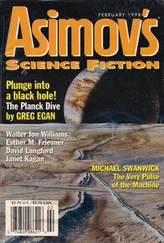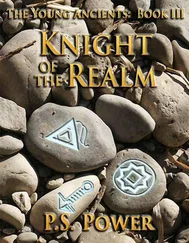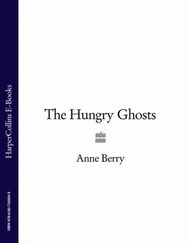In the mind-world of the psyche, as in the material world, some people have more freedom than others. It would be absurd to assert, for example, that in practical worldly matters such as choosing domicile or food, a street dweller has the same degree of freedom as, say, a Wall Street tycoon. On the other hand, in the realm of emotional freedom and conscious decision making a penniless hermit may enjoy much more latitude than a status-addicted millionaire who, still compensating for unconscious childhood hurts, is driven by an insatiable need to be feared or admired. The hardcore drug addict finds the worst of both worlds: low on the totem pole of psychological freedom, she is also at the base of the socioeconomic ladder. The rest of us perch more or less precariously, at whatever altitude, somewhere above her.
In many respects, the addict has as little freedom as the person with OCD. Once the impulse to use a substance arises, brain lock occurs. My patients tell me over and over again that they simply cannot resist the crack pipe or the “speedball” or the fix of heroin when it’s offered to them or when they know it’s available. *24Neither can they refrain from using when they feel stressed or upset or lonely or restless or bored or excited. Even I, without any history of substance dependence, have immense difficulty resisting the mental pressure I experience when the urge to buy CDs begins to churn in my mind. Though I make resolution after resolution, promise after promise, in the end it seems easier just to give in, to get the struggle over with, to relieve the mental tension by running to Sikora’s and handing over my money to the ruthless music traffickers who lurk there among the stacks of recordings. Although I know full well that I have a say in the matter, it often feels like I’m powerless. And if I can feel that powerless, a middle-class professional in middle age with a loving family and a life that (mostly) I love, how free are my Portland Hotel patients?
Once more, freedom is relative. I believe I have much more freedom than the hardcore drug users.
Both the obsessive-compulsive and the addict experience overwhelming tension until they succumb to their compulsive drive. When they finally do, they gain an immense, if momentary, sense of relief. Given this absence of psychic freedom, the addict might as well be an obsessive-compulsive—with one essential difference. Unlike the addict, the person with OCD does not anticipate his compulsive activity with any pleasure. Far from craving it as the addict does, she regards it as unpleasant and distressing.
It may seem at first glance that the addict is more culpable, since he “enjoys” his behaviour as compared with the OCD patient, who suffers from it. In reality, the addict’s temporary enjoyment makes it all the more difficult for him to give up his habit, whereas the obsessive-compulsive would be only too glad to do so, if shown how. When it comes to choosing recovery, this momentary but highly enticing pleasure experience puts the addict at a disadvantage—even if what we call “pleasure” is, in addiction, little more than an evanescent sense of relief from mental distress or spiritual emptiness.

Of course, many addicts with forbidding early childhood histories and prolonged self-destructive chemical or behavioural habits have recovered and recreated themselves as conscious, effective and compassionate members of society. Their transformation is proof that we can never write off anyone as beyond the possibility of freedom. But in practice we are in no position to demand that all addicts should make that choice.
It is useful to study and consider what combination of self-knowledge, strength, supportive environment, good fortune and pure grace allows some people to escape the death grip of hardcore addiction. It is not helpful, however, to compare any one person with another. Just because one person succeeds doesn’t mean that we’re entitled to judge another for having failed. For all our similarities, from the moment of conception we are each shaped by our own unique makeup and set of life experiences. No two human brains look alike, not even those of identical twins. One person’s pain cannot be compared with anyone else’s, nor can we compare any two people’s capacity to endure suffering. In addition to the visible factors, there are also many subtle, invisible ones that may positively influence our psychic strength and our capacity for choice: a kind word spoken long ago, a fortuitous circumstance, a new relationship, a flash of insight, a memory of love, a sudden opening to faith. People who have overcome severe addictions deserve to be celebrated and they have much to teach, but their example cannot be used to condemn others who have not been able follow in their footsteps.
It’s even more nonsensical to judge addicts by arbitrary criteria derived from the experience of people with relatively normal lives. “If it is irrational and hypocritical to hold a minor to the same standard of behavioral control as a mature adult, it is equally unjust to hold a traumatized and neurologically impaired adult to the same standard as one not so afflicted,” says brain researcher Martin Teicher. 4
How much actual freedom to choose does any one human being possess? There’s only one answer: We cannot know. We may have our particular beliefs, spiritual or otherwise, about this aspect of human nature—about how it is or how it should be. These beliefs may strengthen our commitment to helping others find freedom or they may become harmful dogma. Either way, in the end we all have to humble ourselves and admit to a degree of uncertainty. There is no way we can peer into a brain to measure a person’s capacity for awareness and rational choice or to estimate how the relative balance of these brain-mind systems will operate when that person is stressed. There is no gauging the burden of emotional suffering weighing down one person’s psyche against another’s, and there is no way to know what hidden life-enhancing experiences one person may have enjoyed that another has been denied. That is why it’s facile to demand that anyone should be able to “just say no” and to judge them as morally lacking if they can’t.
Freedom of choice, understood from the perspective of brain development, is not a universal or fixed attribute but a statistical probability. In other words, given a certain set of life experiences a human being will have either lesser or greater probability of having freedom in the realm of the psyche. A warmly nurtured child is much more likely to develop emotional freedom than an abused and neglected child. “The brain forces us to become reflections of our personal histories,” write two U.S. research psychiatrists. “Simply stated, children reflect the world in which they are raised.” 5As we have seen, the in utero and early childhood experiences of hardcore addicts will likely diminish the possibility of freedom. The probability of these children attaining even a basic level of psychic freedom from automatic mechanisms and drives is correspondingly less—not completely absent but less.
If we cherish the human potential for transformation, the real issue becomes how to encourage and support the addict’s motivation and capacity to choose freedom despite damaging beginnings and a lifelong history of painful events—how, in other words, to promote healthy brain development later in life when the conditions for it have been lacking from earliest childhood onward. We’ll first look at how the experience of choice arises in the brain and, in particular, in the addicted brain.

Читать дальше













